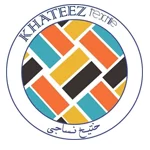About Khateez Textile
Textile products like scarves, shawls, cloth, etc., are in high demand in the local markets. Currently, the market demand is supplied by Korean, Pakistani, Indian, and some Iranian products. Afghan traders import finished products from the mentioned countries and sell them to local wholesalers to meet the local demand.
Our Journey and Expansion
When we started, several small textile factories also initiated operations. However, they faced difficulties in expanding due to contextual problems in Afghanistan. One major challenge was the absence of a stenter machine, which is essential in the textile industry. We firmly believe that this sector will flourish once we install the stenter machine in our factory.
Our journey began modestly, but we have steadily grown over time. Equipped with state-of-the-art machinery, we complete the entire value chain, with the exception of a stenter machine that we planned to acquire. Unfortunately, financial constraints hindered our ability to make the purchase.
The local demand for our products is substantial. Our operations over the past few years have demonstrated that we can compete against imported goods, as people have shown a preference for local products. We have a strong market presence in Nangarhar, Nooristan, and Kabul. In fact, two cloth wholesalers have already committed to purchasing 300,000 meters of cloth per month from us. Additionally, demand for other products, such as winter woolen shawls for men and women, as well as woolen and cotton scarves for summer, is remarkably high. Our track record in supplying these products to the local market has been flawless.
About Khateez Textile Factory
Established in 2016, Khateez Textile Factory started small and gradually expanded its operations. Our initial investment of US$ 30,000 has now grown to approximately US$ 0.8 million in machinery and building. The business has experienced growth in terms of assets, production, and market share, attracting new customers along the way.
Certain sections of our factory remain inactive due to low production from both local textile factories and our own. However, once fully operational, we anticipate a significant increase in employment opportunities. Currently, only 10% of our factory is active. Activating 100% of our machinery would require 260 employees working in three shifts.
Despite the challenges faced after the collapse of the previous government in mid-August 2021, Khateez Textile Factory stands strong. We have expanded our market segment from Nangarhar to Nuristan and several other provinces, solidifying our position in the industry.
